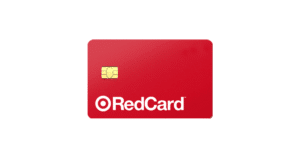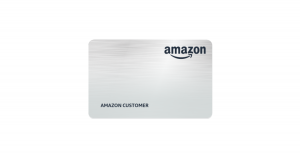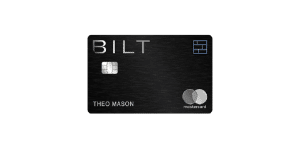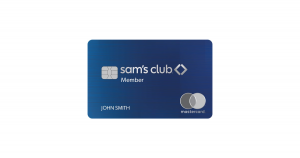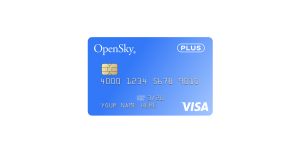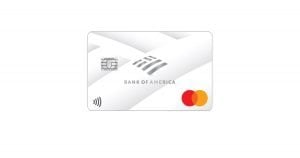Last updated on April 3rd, 2024
Thanks to their specialized rewards, discounts, and lower credit qualification requirements, retail and store credit cards are popular options for consumers. But store cards come in two distinct varieties: closed loop, and open loop. What does that mean, and which should you select? Here’s everything you need to know about open loop and closed loop credit cards:
At a Glance
- Open loop credit cards feature a payment network, like Visa or Mastercard – meaning the cardholder can use the card to make purchases wherever those networks are accepted.
- Closed loop credit cards only work at the issuing retailer or on the retailer’s website.
- Closed loop credit cards are great for the brand-loyal shopper and anyone looking to build credit because they tend to have slightly lower credit requirements.
- Open loop credit cards offer greater versatility and rewards, but may feature annual fees.
What is a Closed Loop Credit Card?
When people think about a store credit card, they probably think about a “closed loop” card. A closed loop card is a type of credit card you can use to make purchases at one retailer on group of stores only. Another term for a closed loop credit card is a single-purpose credit card.
Single-purpose/closed loop cards will feature the name and logo of the store where they can be used but will not have a payment network logo on them. If your retail card doesn’t have the Visa, Mastercard, Discover, or American Express logo on it, chances are it is closed loop. Closed loop credit cards can only be used at the issuing retailer or its associated partners.
Common Features of Store Cards That are Closed Loop
Because they lack a broad payment network, closed loop cards have very limited acceptance versus a traditional credit card from Visa or Mastercard, for example. Closed loop credit cards are accepted only at the retailer or retailers for which they were issued.
Additionally, these cards are often co-branded in partnership with the retailer and feature unique rewards, discounts, or promotional offers tied to the brand. These perks can include exclusive discounts, early access to sales, or loyalty points that can be redeemed for store merchandise.
Other notable features of closed loop store credit cards include:
- Lower Credit Limits: Store credit cards are often marketed to individuals with varying levels of credit history, including those who might be new to credit or have lower credit scores. Issuers may set lower credit limits to manage risk and ensure responsible borrowing for these customers. To mitigate potential losses from defaults, these issuing banks may offer lower initial credit limits until a cardholder’s payment behavior and good creditworthiness are established.
- Higher Interest Rates and Fees: Closed loop cards typically have higher interest rates than traditional credit cards, thanks to many of the factors mentioned in the previous point.
- No Annual Fees: Most store cards feature no annual fee. The lack of a membership charge, reasonable credit limits, niche-focused rewards, and easier credit qualifications make closed loop store cards a great option for building credit.
Examples of Closed Loop Store Cards
Just like there are thousands of chain stores and brands in the United States, so are there many single-purpose, closed loop store cards. Comenity Bank (Bread Financial)and Synchrony are two of the largest issuers of store cards, with notable examples including:
Merchandise cards are another example of a type of closed loop card. These are not credit cards, but they provide a line of unsecured credit at an individual online store or online catalog. There are several merchandise cards on the market today. Depending on the card’s issuing institution, these cards offer different benefits to account holders.
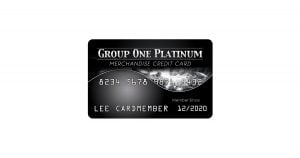 Group One Platinum |
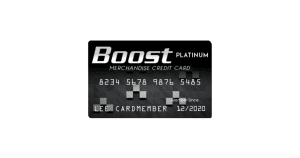 Boost Platinum |
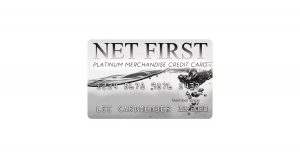 NetFirst Platinum |
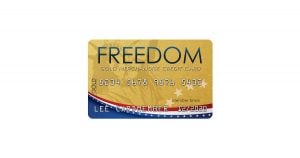 Freedom Gold |
 Buy On Trust Lending |
 Unique Platinum |
Who Should Consider Applying for a Store Card?
Closed loop credit cards are designed with specific types of consumers in mind:
- Frequent Shoppers: Customers loyal to a specific retailer or brand and wishing to access exclusive deals and rewards can find value in closed loop credit cards. Individuals who frequently shop at a particular retailer can benefit from closed loop credit cards’ specialized discounts and rewards. These cards can help loyal customers save money on their purchases.
- Credit Builders: Closed loop credit cards can be an entry point for those new to credit or looking to build or rebuild their credit history. Retailers may offer these cards to individuals with limited credit history or lower credit scores. Plus, since closed loop cards often have more lenient approval criteria, they can be a starting point for individuals without strong credit profiles.
- Occasional Users: Closed loop credit cards are suitable for consumers who primarily shop at that retailer or within the affiliated brand network. These cards may not be ideal for consumers seeking a more versatile payment option.
What is an Open Loop Credit Card?
So, if a closed loop card can only be used at one retailer or brand, an open loop card can be used at almost every retailer, right? Right!
An open loop credit card is a type of payment card that is issued by a financial institution, such as a bank or credit union. As previously mentioned, an open loop card is a traditional credit card, meaning it is part of a larger payment network and features well-known names like Visa, Mastercard, American Express, or Discover. These cards are designed to be widely accepted by a vast network of merchants, both online and in physical stores, making them versatile tools for making purchases, paying bills, and accessing credit.
Common Features of Open Loop Credit Cards
Since open loop credit cards are essentially what you think of when you imagine a credit card, you are likely already familiar with many of their common features:
- Wide Acceptance: Open loop credit cards can be used at various businesses, including retail stores, restaurants, travel services, online retailers, and more. They can be used at most locations where the card’s payment network is accepted. As an example, currently merchants in over 200 countries around the world accept both Visa and Mastercard.
- Issuer: Open loop credit cards are issued by financial institutions such as banks or credit unions. These issuers extend a line of credit to cardholders, allowing them to make purchases on credit up to a predetermined limit. Store and closed loop cards, on the other hand, can be issued by financial companies other than banks or credit unions.
- Revolving Credit: Open loop credit cards offer revolving credit, which means cardholders can carry a balance from month to month, paying at least a minimum payment or the full balance by the due date to avoid interest charges. The only exception to this is charge cards, also known as pay-in-full credit cards, which require the balance to be paid in full monthly. These types of cards, however, are no longer very common.
Examples of Open Loop Cards
Like closed loop cards, there is a vast variety of open loop store cards. Here are some of the more popular retail cards available today:
Ideal Candidates for Open Loop Credit Cards
Because they are the essence of a credit card, open loop credit cards are ideal for almost any type of consumer. These individuals (and groups) include students, business travelers, crypto enthusiasts, the brand loyal shoppers, and those looking for a quick route to rebuilding their credit.
Summing It Up
So, should you apply for a closed loop store credit card or one that you can use in more than one place? The best option for you depends on what you want in a credit card. A closed loop card is an excellent option if you plan to monitor your spending or only have one main retailer in mind. Making a furniture purchase, for example, and paying it down over time, is an excellent use for a store-only single-purpose credit card.
Using a single-purpose card to rebuild your credit is another good strategy. Because store cards typically accept applications from those with fair credit, they are easier to get than many open loop credit cards. A closed loop card, like the Group One Platinum, can help you monitor your spending and access an unsecured line of credit. The only caveat is ensuring that you pay at least your minimum due balance on time every month.
Conversely, an open loop credit card is a better bet if you want a credit card that earns points toward your favorite store. Cards like the Prime Visa offer savings at additional Amazon brands – like Whole Foods – and are accepted at over 40 million merchants worldwide. Additionally, open loop cards provide greater protections, including $0 fraud liability against unauthorized charges, car rental insurance, extended warranty protection, and more.
Editorial Disclosure – The opinions expressed on BestCards.com's reviews, articles, and all other content on or relating to the website are solely those of the content’s author(s). These opinions do not reflect those of any card issuer or financial institution, and editorial content on our site has not been reviewed or approved by these entities unless noted otherwise. Further, BestCards.com lists credit card offers that are frequently updated with information believed to be accurate to the best of our team's knowledge. However, please review the information provided directly by the credit card issuer or related financial institution for full details.

